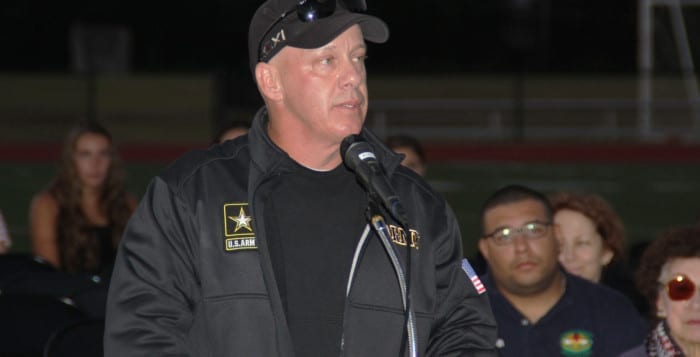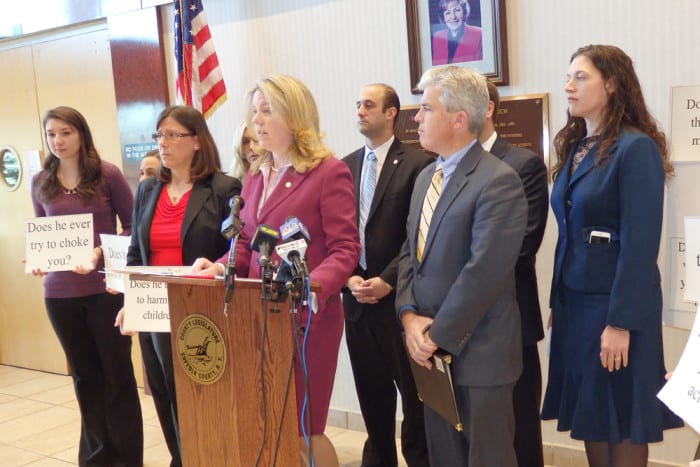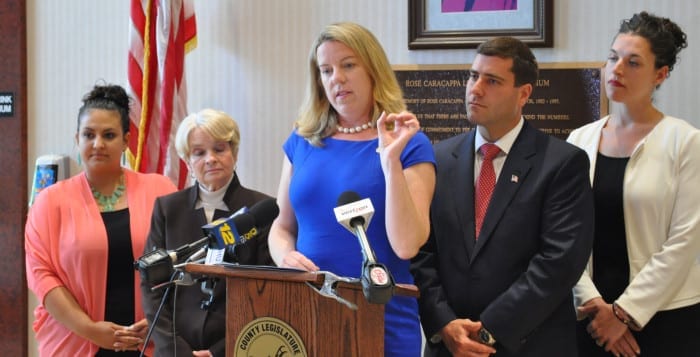Nearly three years after a tragic limousine crash killed four Smithtown women, their families are coming together to host a memorial 5K run in their honor.
The first Running 4 Our Angels 5K run/walk is scheduled to be held Sunday April 8 at 9 a.m. outside Smithtown High School West to remember the lives of Lauren Baruch, Stephanie Belli, Amy Grabina and Brittney Schulman.
“I wanted to do something for all four of the girls, I felt compelled to do something,” said Felicia Baruch, Lauren’s mother.
On July 18, 2015, the four young women were part of a group that rented a limousine for a bachelorette party to go wine tasting at North Fork vineyards. The outing took a tragic turn when Steven Romeo, 57, of Peconic, was driving his red pickup truck and collided with the limousine as it attempted to make a U-turn near the intersection of Depot Lane and County Route 48 in Cutchogue. Baruch and Schulman, of Smithtown, as well as Belli, of Kings Park, and Grabina, of Commack, died in the crash that also injured six others.
The limo driver, Carlos Pino, 60, of Old Bethpage, was arrested and arraigned on four charges of criminally negligent homicide, four counts of assault, failure to yield the right of way, reckless driving and other traffic violations. The charges were dismissed against Pino in October 2017, but the Suffolk County District Attorney’s office has a pending appeal to reinstate the charges against Pino.
Romeo pled guilty to driving while impaired, a traffic infraction, and received a 90-day license suspension in April 2017.
In the years following the tragedy, each of the women’s families have created nonprofit organizations or scholarship funds to honor their daughters’ memories: The Lawzie Marigold Foundation, founded in honor of
Lauren Baruch; the Stephanie Belli Whisperette Scholarship; The Amy Rose Grabina Foundation; and a scholarship given out by the Schulman family.
The Running 4 Our Angels 5K run/walk will be their first joint fundraiser, according to Baruch. All proceeds will be split equally among the four charitable organizations.
“The purpose of the 5K Run/Walk is to increase awareness in our community regarding the safety issues of limousines,” reads the event’s website. “Our top priority is to have more prudent regulations on the internal and external structure of limousines, as well as mandated comprehensive training programs. Currently, there are no formal training programs for limousine drivers.”
Online registration for the event costs $30 through April 7 at 11:59 p.m. through the website www.runsignup.com/Race/NY/Smithtown/LawzieMarigold5K. The run is certified and sanctioned by USA Track & Field with mile markers and water stations.
Bib pickup and day-of registrations will be held at Smithtown High School West, located at 100 Central Road, from 7:30 to 8:45 a.m.
Awards will be presented to the top three overall male and female finishers, as well as the top three male and female finishers in 16 different age groups.
Following the run, Town of Smithtown officials will host an honorary ceremony renaming a road outside High School West, at approximately 11:15 a.m., according to town spokeswoman Nicole Garguilo.








